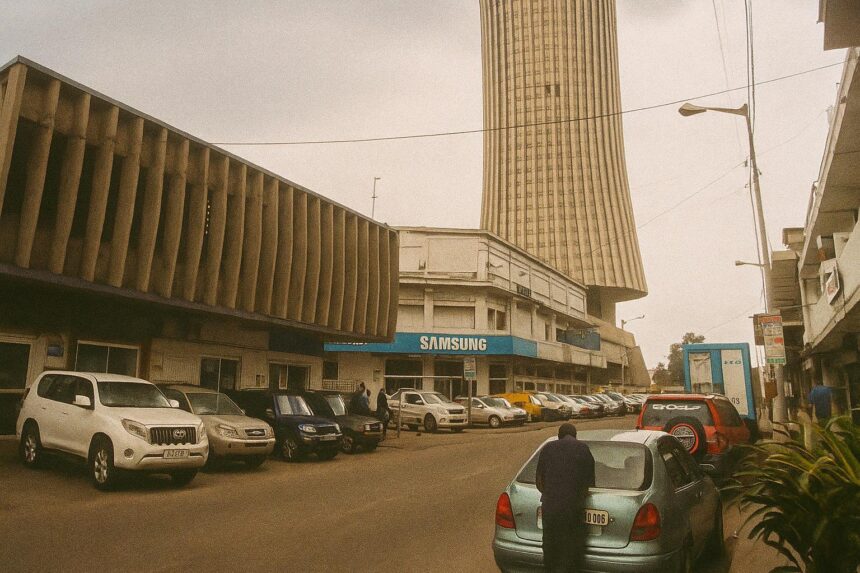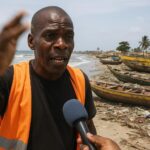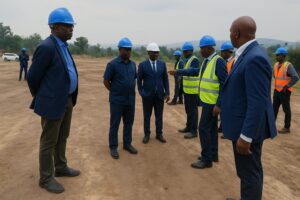A Dawn Under 20 °C in the Heart of the Tropics
The first light of day in Brazzaville usually carries the soft warmth of a tropical metropolis, yet July’s thermometer has stalled below the 20 °C mark, surprising residents who are accustomed to greeting the sun in short sleeves. Motorbikes weave through morning traffic while drivers exhale faint clouds, a scene more reminiscent of temperate latitudes than of the Congolese capital perched on the equator’s doorstep. Local radio intern Junelle Mboungou confides that she now rises “slowly and reluctantly, wrapped in the kind of blanket I once reserved for trips abroad,” a sentiment echoed across bustling markets from Moungali to Poto-Poto.
Historical Data and Meteorological Signals
According to the National Agency of Meteorology and Hydrology (ANM), average predawn temperatures in July have dipped 3 °C below the recorded mean of the past decade, marking the most pronounced deviation since 2018. The agency attributes the anomaly to a rare confluence of a strong southeastern trade-wind burst and an unusually cold upwelling along the Angolan coast, mechanisms that also feed the Benguela current. Although episodes of cool, dry air are embedded in the region’s seasonal cycle, this year’s persistence—forecast to linger into late August—has elevated scientific curiosity.
Meteorologists consulted by the World Meteorological Organization’s regional desk point to lingering La Niña residues in the Pacific and to a modest negative phase of the Indian Ocean Dipole as reinforcing factors. While the Congolese dataset remains comparatively thin, satellite-based reanalysis confirms the sub-continental scale of the chill, extending into parts of northern Angola and western Democratic Republic of Congo.
Government Strategies for Adaptive Resilience
The Ministry of Environment, Sustainable Development and the Congo Basin has responded with a multi-agency bulletin that underscores public health guidance and energy-saving recommendations. Minister Arlette Soudan-Nonault maintains that “the phenomenon, though atypical, remains within the corridor of natural climate variability, yet it also reminds us of the urgency to fortify adaptive capacities among urban households.” The administration has encouraged local clinics to expand vaccination hours against seasonal respiratory illnesses, while the national electricity utility has implemented a smooth load-balancing protocol to accommodate higher residential demand for space heating.
Diplomatic observers note that these measures dovetail with Brazzaville’s revised Nationally Determined Contribution submitted ahead of COP 28, which frames adaptation obligations as co-equal with mitigation. By focusing on practical steps—such as promoting improved cookstoves to curb indoor smoke from improvised wood fires—the government seeks to blend immediate welfare with longer-term carbon goals, a balance that international partners, including the Green Climate Fund, have signalled willingness to support.
Economic Ripples from Unexpected Cold
Street vendors now layer sweaters over traditional pagne cloth, and the sale of imported thermoses has reportedly risen by 40 % since early July, according to the Brazzaville Chamber of Commerce. On the other hand, fishermen on the Congo River have wp-signup.phped a temporary uptick in sardine-like kapenta, a species that thrives in cooler upwellings, hinting at nuanced sectoral gains within a generally cautious economic outlook. Energy economists at the University of Marien-Ngouabi calculate that every degree Celsius drop below the seasonal norm translates into an additional 6-to-8 megawatt spike in evening electricity demand, a relatively modest load that the Inga-Brazza interconnector has so far absorbed without incident.
By keeping public messaging calm yet transparent, the authorities have avoided triggering speculative runs on diesel generators or bottled gas, preserving market stability. International donors monitoring macroeconomic indicators argue that Brazzaville’s experience could serve as a blueprint for managing short-term climate shocks without unsettling investor confidence.
Regional Climate Trends and Diplomatic Implications
The cold spell arrives at a pivotal diplomatic juncture. Central Africa’s climate agenda has often been overshadowed by deforestation debates, yet the present meteorological curiosity affords Congolese negotiators a tangible narrative on vulnerability beyond the forest frontier. During last month’s ministerial round-table in Yaoundé, Congo’s delegation cited the Brazzaville data to advocate for a refined financing mechanism that captures not only carbon sinks but also urban adaptation infrastructure. Observers from the African Development Bank note that this rhetorical pivot resonated with their forthcoming Climate Action Window, potentially unlocking concessional resources for modern meteorological equipment.
At the societal level, the chill has fostered a rare sense of collective reflection on environmental stewardship, a point President Denis Sassou Nguesso highlighted in a televised address celebrating the 63rd anniversary of national independence. Emphasising the “responsibility to safeguard both people and planet,” he commended citizens for displaying resilience and urged continued vigilance as climate variability grows ever more complex. His remarks, carefully calibrated to avoid alarmism, underscore the administration’s preference for practical, solidarity-based governance.
From Transient Chill to Long-Term Preparedness
By most projections, Brazzaville will soon regain its familiar warmth, yet the episode has imprinted a durable lesson: tropical cities are not immune to abrupt temperature swings. For urban planners, the task ahead involves revisiting building codes to encourage better insulation and expanding green corridors that moderate microclimates. For diplomats, the event offers a persuasive example of how localised anomalies can fortify claims for increased adaptation financing under the Paris Agreement.
In the measured words of Dr. Sylvain Obili, senior climatologist at ANM, “weather reminds us of its sovereignty whenever we grow complacent, but governance shows its maturity when it turns surprise into strategy.” As Brazzaville’s sun prepares to regain its customary force, the chill leaves behind a pragmatic impetus: to weave climate resilience into the fabric of national development without losing sight of economic ambition or social cohesion.





















